PSM, the Plantation Workers Support Committee (JSML), and plantation workers at large welcome the announcement made by Housing and Local Government Minister Nga Kor Ming.
He declared that the 26-year-old housing woes of five estates in Hulu Selangor and Kuala Selangor have been resolved.
According to the announcement, 245 workers from Ladang Mary, Ldg Sg Tinggi, Minyak, Nigel Gardner, and Ladang Bukit Tagar will receive subsidised affordable landed housing.
Most of the expenses will be borne by the federal and state governments. Specifically, the governments will contribute RM75 million while the land will be provided by Berjaya Corporation.
Nga also expects the project to be completed within 24 months after receiving construction approval.
Previously, the workers were offered land, low-cost flats, and townhouses during their struggle. However, they rejected these options because they desired landed properties within the vast plantation land bank of Kuala Selangor and Hulu Selangor.
Our analysis follows below.
Sideshow at the launch
During the launch event, there was an amusing sideshow involving some supporters. These individuals, reportedly associated with a state executive councillor, brought placards to thank the minister.
Ironically, they seemed unaware that the workers had been carrying placards during protests all along. Nevertheless, today they celebrated with the same placards - a humorous twist.
When we attempted to take a photo with the minister and the plantation workers, other politicians who played a minor role in the struggle suddenly scrambled centre stage. Their actions inadvertently blocked workers.
Further, a representative claiming to be an aide of the state exco instructed the workers to move away from the stage.
Despite these minor disruptions, the event concluded well. The crucial point is the announcement and the promise that the houses will be built. Nga assured us he has finally put an end to this 26-year saga.
Why is it significant?
Securing free or subsidised housing for plantation workers isn’t a new phenomenon because organisations like PSM and JSML, along with courageous plantation workers from various estates, have achieved similar victories in the past.
The first instance of plantation workers obtaining free housing in Selangor dates back to 1991 with Ladang Sungai Rasah, which catalysed a policy by the Selangor state government mandating that any estate undergoing development must address the housing needs of its workers.
In the early 1990s, numerous plantation lands were converted to industrial or residential property, resulting in hefty profits for plantation companies.
Often, these companies would evict workers, compensating them based on Collective Agreements (CA) or the Employment Act. This led to resistance and organised demands for housing, as witnessed in Ladang Braemar, Ladang Bukit Jelutong, Ladang Midlands, Ladang Brooklands, and others.
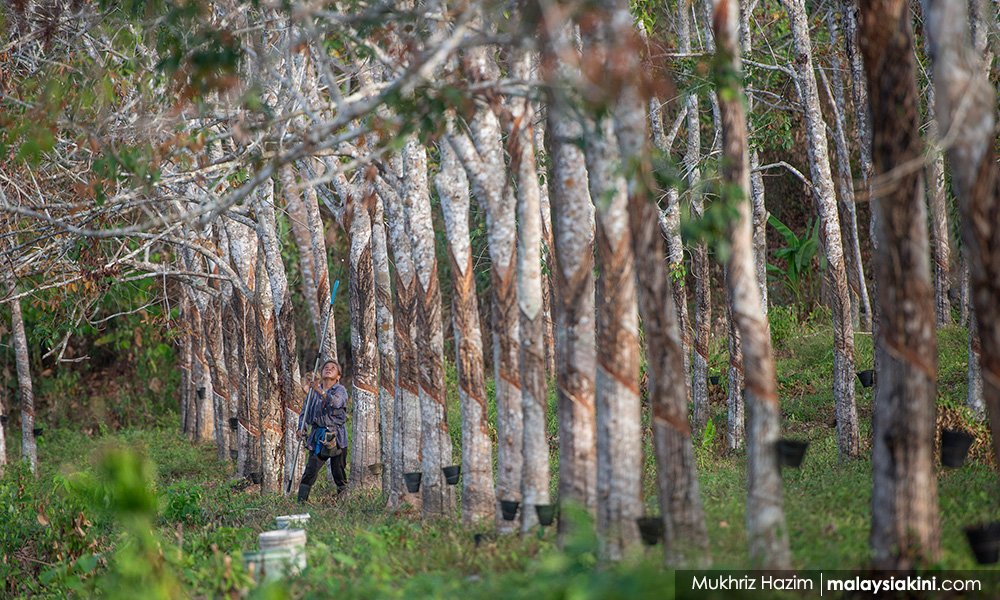
These resistance movements prompted the establishment of safeguarding policies, though they lacked legal binding. In 1995, just before the general election, then-human resources minister Lim Ah Lek introduced a national policy similar to Selangor’s, requiring housing provision before eviction, yet without legal enforcement.
Even Tun Abdul Razak’s Housing Policy introduced as part of the New Economic Policy (NEP) in 1973 remained largely unimplemented, despite the availability of a revolving fund of RM10 million and less than a dozen estates out of thousands actually executing the schemes.
Another significant victory occurred when the government decided to construct terrace houses for four estates whose lands were partly acquired to establish Putrajaya, resulting in the displacement of residents to the Taman Permata Dengkil flats.
Built hastily and with numerous issues, including lacking a Certificate of Fitness (CF), these flats were offered to workers at a discounted price of RM20,000 prior to the 1999 election.
Why is the victory of securing houses for the five estates in Lot 25 in Bestari Jaya significant? This victory holds particular significance because the Madani government has, for the first time, undertaken the construction of houses for plantation workers whose estates have yet to undergo development.
This is indeed a commendable move, considering that most plantation workers cannot afford houses priced at around RM250,000 today, given their wages.
It should be viewed as a recognition of the contributions made by three to four generations of plantation workers who tirelessly toiled on the plantations, contributing to the nation’s economy, and elevating companies such as Sime Darby to prominence in the region.
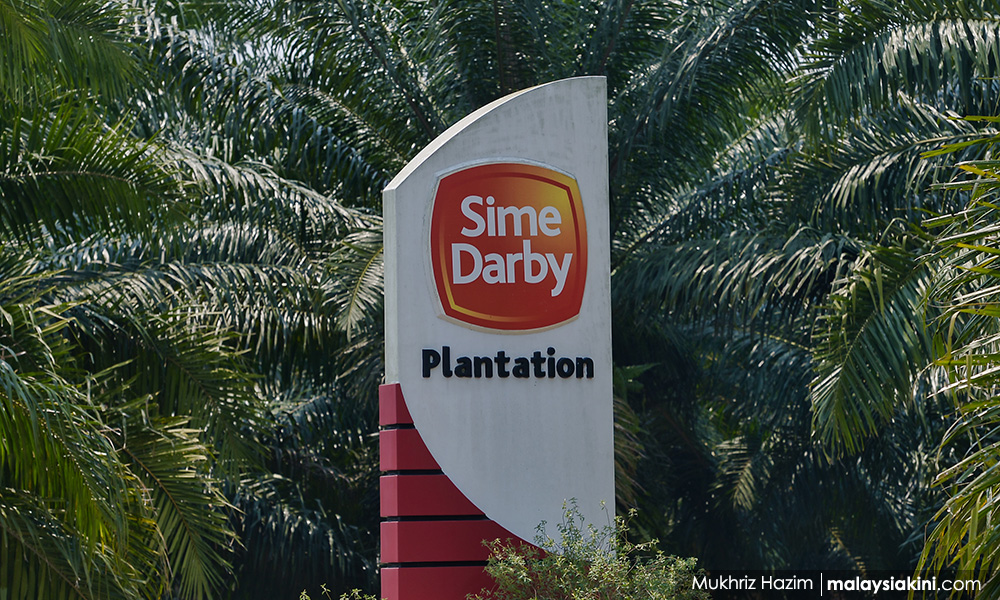
With the Madani government embarking on the construction of these houses, they acknowledge the pressing housing needs of plantation workers.
Unlike Felda settlers who own houses, Orang Asli protected under customary land rights, or residents of Chinese new villages, plantation workers do not own the estate houses they currently reside in, as these belong to the companies on private land.
Their situation becomes precarious upon retirement or job loss, as they risk losing their shelter as well.
Victory after years of struggle
As indications surfaced that the government would construct houses, a scramble ensued primarily among local leaders from both sides, each seeking to portray it as their effort.
However, the reality is that it was the courageous struggle of the plantation workers, coupled with the efforts of National Housing Department director-general N Jayaselan, that brought about this victory.
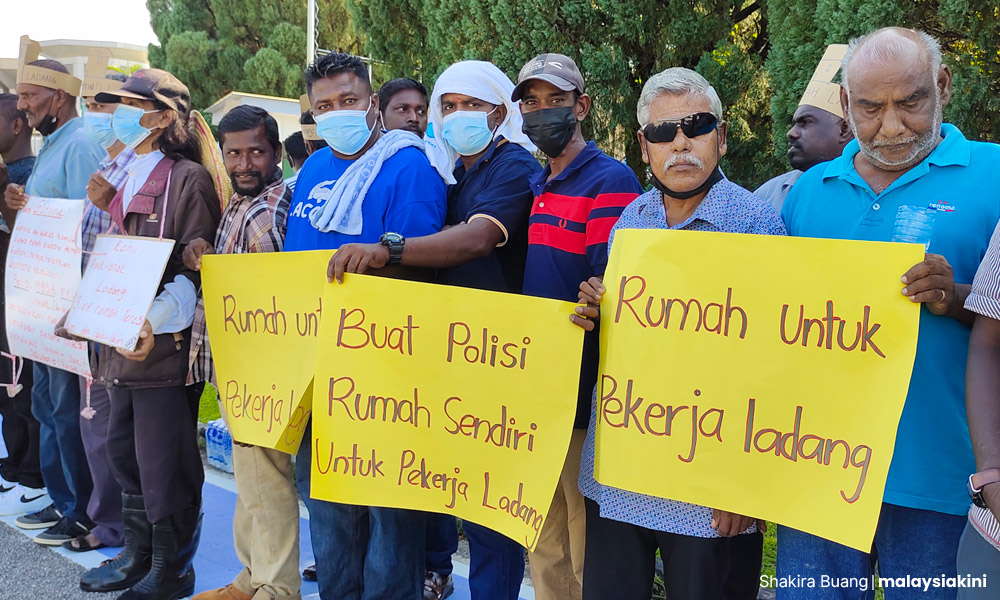
Though a detailed explanation would require a book, here’s the abridged version. Vincent Tan’s Berjaya acquired 11,500 acres of land from Socfin, a French company.
Perhaps from the outset, Berjaya was never truly interested in the plantation business. To their credit, as early as 1999, they declared their intention to build houses if the estate underwent development.
Our brochure lists numerous politicians who previously promised houses for these workers, often coinciding with general elections. These politicians ranged from MIC leaders like G Palanivel and K Sivalingam to Pakatan Harapan’s time with Xavier Jayakumar and V Ganabatirau from PKR, as well as figures like Khir Toyo and Noh Omar from UMNO, and later, Zuraida Kamaruddin who became the housing minister.
The situation escalated when Berjaya sold the land to Tagar Properties in 2015, prompting 57 workers to receive eviction notices, demanding they vacate the estate by April 15, 2016. This led to a flurry of police reports and letters to the state government and Berjaya protesting the eviction notice.
Ganabatirau informed us that Berjaya was willing to build houses but required funds for water pipes, amounting to RM6 million. Just two days before the deadline on April 13, hundreds of workers protested at the Selangor government’s office, and a memorandum was sent to the then menteri besar Azmin Ali.
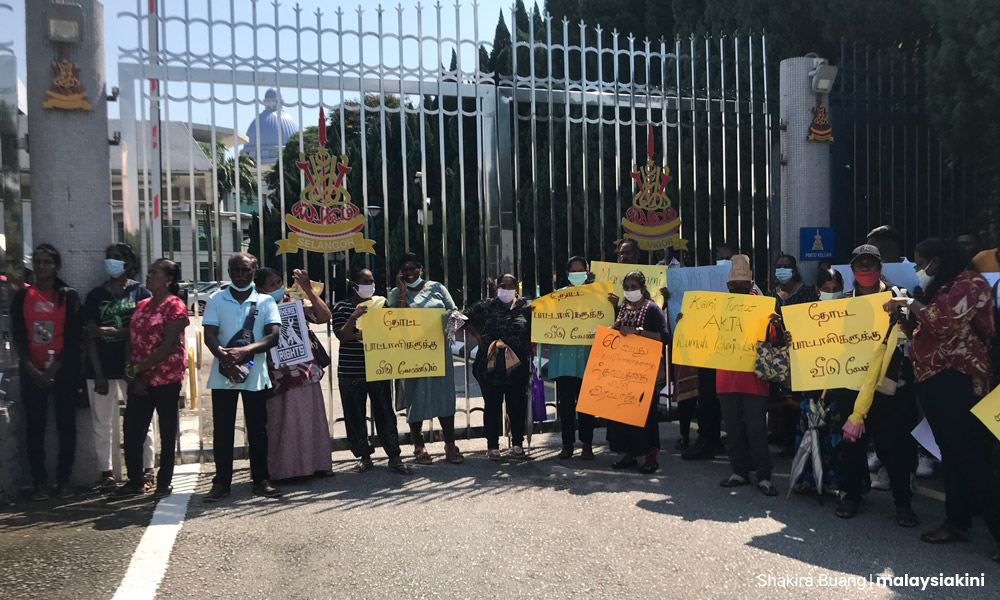
Subsequently, a meeting at Ganabatirau’s office resulted in assurance from Berjaya and Tagar Properties that no eviction would occur until housing issues were resolved, temporarily averting the threat of eviction.
In November 2016, Berjaya presented an ultimatum settlement via Ganabatirau, offering to build Rumah Selangorku at a discounted price for only 69 workers, while we demanded the offer extend to all 245 workers, including those currently employed, and insisted on terrace houses over low-cost flats.
On July 13, 2017, five buses of workers from these estates journeyed to Berjaya Times Square in Kuala Lumpur, presenting two demands to Berjaya: the construction of 245 low-cost terrace houses and a halt to all evictions until houses were built.
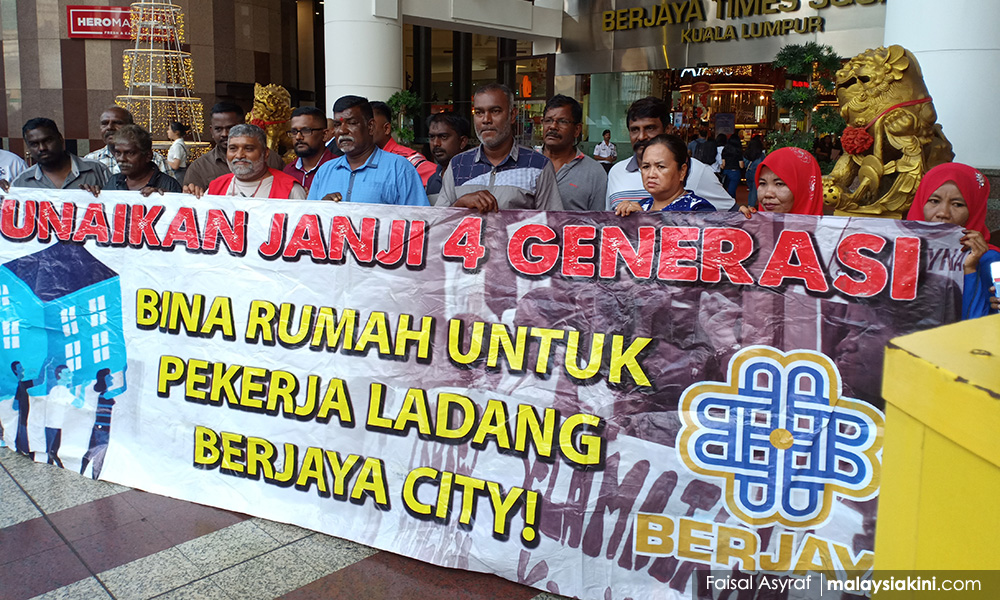
Additionally, we wrote to the state government urging the freeze of all development plans by Berjaya in these land areas until the housing issues were resolved.
Following advice from the Housing Department, we wrote to the Housing and Local Government minister and tycoon Tan on Sept 21, requesting an increase in land from 12.75 acres to 20 acres to accommodate the construction of terrace houses for all 245 workers.
After overcoming this hurdle, we learned from Zuraida that there was a budget of RM96.5 million available, but new issues arose, such as delays in the tendering process. Then, the world was struck by Covid-19, leading to the reallocation of the budget intended for these estates to other purposes.
We subsequently sent numerous letters to request a budget allocation but received no response. Every year, we wrote to the Economic Planning Unit, Housing Ministry, and the finance minister, urging for funds to be allocated for this project, but our requests were not taken seriously.
Initially, the new minister, Nga, was unresponsive to the committee’s letters. A parliamentary question from Ganabatirau regarding the 20-acre Berjaya land was also answered by the ministry with little effort or conviction.
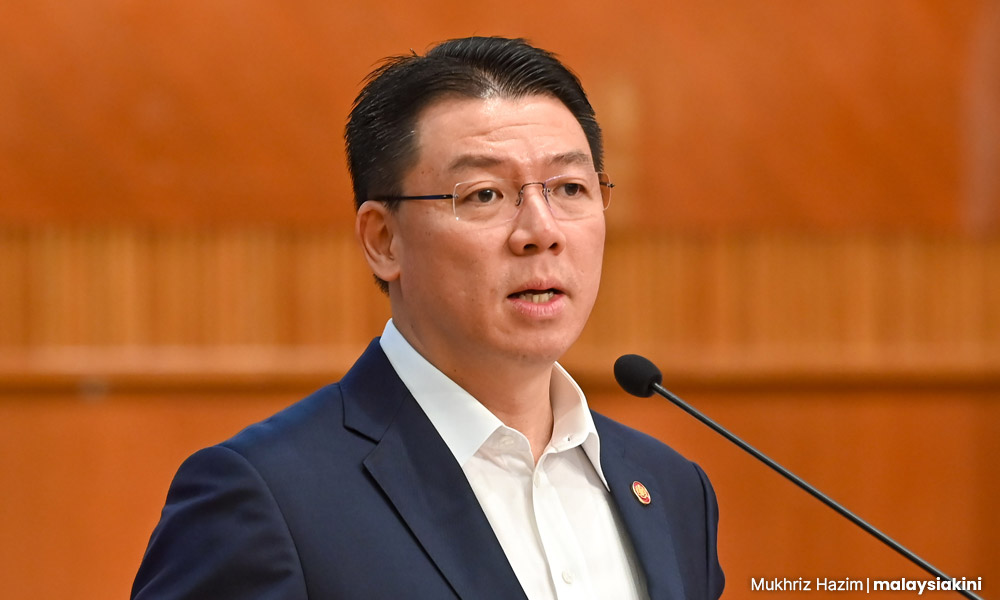
During the last state election, the late assemblyperson Lee Kee Hiong promised to arrange a meeting with the minister before August 31, 2023, but that promise went unfulfilled.
Despite numerous meetings with local Harapan leaders from PKR, they were unable to secure a meeting with the minister. However, meeting with the minister was crucial as we already had the land and simply needed the budget allocated.
To exacerbate matters, the new Selangor executive councillor, V Papparaidu, attempted to establish a new committee comprising individuals close to him.
He also sought to conduct a new survey, sidelining the original committee that had been working on this matter for years. Upon hearing this, estate workers sent a protest letter to the menteri besar on March 22, 2024.
In a recent press conference, the exco mentioned that he appointed a person who is his friend. Our committee was concerned because this individual previously attempted to increase the number of houses and had contractual ties to the new estate owner.
Saved by the by-election
Before the by-election, things had become stagnant, and we felt as though we were being taken for a ride. Several local politicians kept asking us for documents, but nobody could secure us a meeting with the minister or the menteri besar.
The new executive councillor initiated a fresh committee and wanted to restart the entire process, bypassing the local committee that had already put in so much work.
In light of this dim scenario, we considered two strategies to reenergise our struggle. The options running through our minds were either to occupy the ministry to ensure the minister’s attendance, or mobilise people to Parliament.
It was during this time that news surfaced about the likely by-election, which suddenly changed the entire equation.
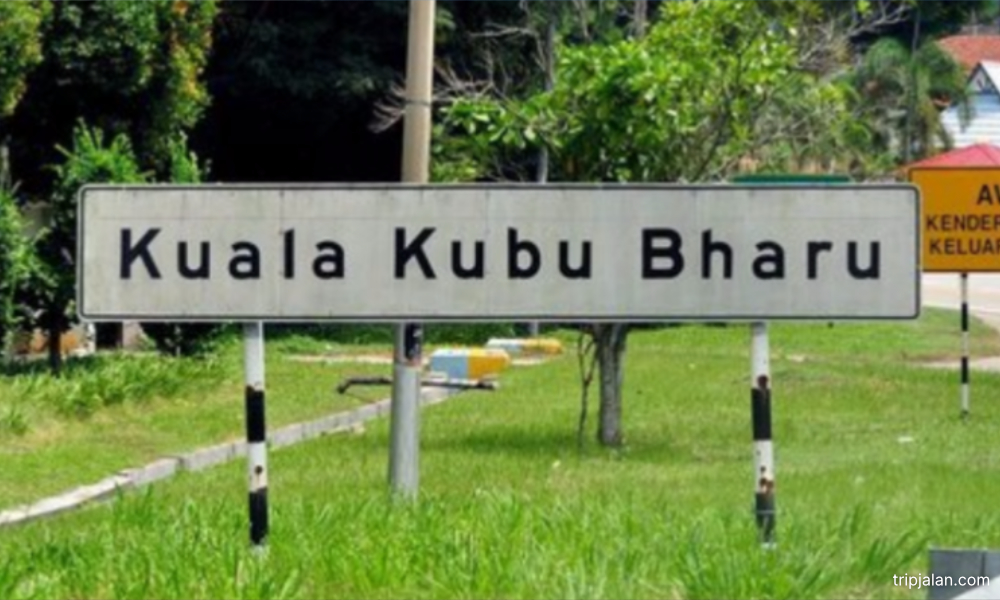
We convened an emergency meeting and decided that, unlike in previous years, we wouldn’t allow politicians to take us for granted. The meeting participants agreed that workers would set up their own tents rather than sitting in tents erected by political parties.
Additionally, we resolved to ask every politician seeking our support to have their candidates sign a Statutory Declaration (SD) and read our brochure. For those from the ruling party, we conveyed our message that we wanted to meet the MB or the minister.
On April 24, we held a press conference to outline our terms. Only two of the five estates - Nigel Gardner and Bukit Tagar - were part of the Kuala Kubu Baharu constituency.
Our press conference was successful, with around 60 workers from the five estates presenting their case. In contrast, the state exco’s counter press conference was attended by only one person from the Sg Tinggi estate.
Our demands were straightforward: the land was available, and we needed the budget to construct the houses.
Although some people ridiculed the SDs, they compelled politicians to read our specific demands. Several news platforms also highlighted this new practice of SD signing.
As the campaign period began, it became evident that securing votes from estate workers, once described as docile, would not be easy. Both main parties faced challenges in putting up their flags because local youths would remove them or demand their removal until housing demands were met.
Politicians from both sides received the same cold treatment. It was an empowering process. Even a few MPs, state assemblypersons, and ministers who visited the Nigel Gardner estate were met with indifference, and the news spread.
It wouldn’t be easy. Offering hampers and entertainment wouldn’t guarantee votes; people wanted fundamental issues resolved.
News of our struggle reached higher authorities. Many individuals raised the matter with the minister, menteri besar, and prime minister. State assemblyperson Gunaraj George informed us that Anwar himself directed Nga to address the issue.
From another source, we learned that Nga also wanted the matter resolved, recognising the promises made during previous elections and the sentiments on the ground.
Finally, an accomplishment
The long-awaited announcement is finally here. The suspense has ended. Although no candidate signed the SD agreement, receiving an announcement from the minister and endorsement by the menteri besar served as our guarantee letter for now.
While some quarters dismissed this as an election gimmick, we have meticulously verified various aspects, including the land, size, and financing, and they all appeared legitimate. According to Jayaselan, the project has been approved.
We owe gratitude to several parties. First, the media, for highlighting our plight. Second, the Indian Malaysian politicians within the ruling party who advocated for a solution.
Third, the opposition, which used this issue as part of their election campaign. A special mention goes to Jayaselan who patiently advised and assisted us during our numerous enquiries.
As the first week of campaigning drew to a close and positive news began to leak, opportunistic politicians scrambled to claim credit.
However, I assured the people that after May 11, things would gradually return to normal in KKB. The workers, who were treated as VIPs during this struggle, still need to discuss purchasing the units, finalising the list, and managing other related matters.
Our committee and the hardworking workers who dedicated countless hours to this fight deserve the final applause.
This housing struggle spanned nearly a quarter of a century, yet it was a repayment to the three to four generations who toiled the land and contributed to the wealth and prosperity of our nation.
This victory is significant and has the potential to serve as a catalyst for other plantation communities. - Mkini
S ARUTCHELVAN is PSM deputy chairperson.
The views expressed here are those of the author/contributor and do not necessarily represent the views of MMKtT.




No comments:
Post a Comment
Note: Only a member of this blog may post a comment.